REDUCING SEASONAL ALLERGIES IN Austin
While it’s simple for many of us to live for the warm season, there are a lot of persons that are affected by seasonal allergies. Did you know that grass and the weeds that increase in grass are one of the most major contributors to allergies?
According to the American Academy of Allergy Asthma & Immunology, allergic reactions to grasses are very frequent. Grass allergies can appear in various manners, counting nasal symptoms (runny nose, stuffiness, sneezing, asthma, and eye symptoms (itchy, watery/red eyes). A lot of persons can additionally have skin reactions (hives or skin welts) after exposure to turfs, though this is considerably less common. Turf allergies are extensive because grass pollen disseminates in the air, which is opposite from pollen that gets moved around insects, so you are sure to breathe it in and thus develop symptoms. In most zones of America, including Austin, grass mainly pollinates in the late spring season (April through early June).
If you’re part of the millions afflicted from recurrent allergies, artificial turf could help alleviate a good part of your symptoms without the requirement of pharmaceuticals. Look down to discover more.
DOES SYNTHETIC GRASS GET RID OF ALLERGIES?
Well, it varies. Not every person is allergic to solely turf. Some are allergic to the pollen that trees and herbs propagate, too. The main frequent allergy to grass is called hay fever. If you’ve become ill with hay fever previously, you know just how wretched it is. It might be tough to avoid grass allergens completely, yet you can definitely reduce your susceptibility by removing the natural grass on your property.
When you transform your natural grass garden to artificial grass, the pollen count will be significantly lower. Although there can yet be pollen in the vicinity from bushes and herbs, turf pollen production will be stopped in your nearest environs.
WILL SYNTHETIC GRASS HELP MY DOG’S ALLERGIES?
Does your dog is afflicted with allergies, too? It’s getting more common for dogs to be afflicted by pollen allergies today. They will show identical symptoms you could go through, like sneezing and watery eyes. Allergy pharmaceuticals can turn your dog dazed, so they won’t act like themselves while the pollen count is considerable.
It’s a frequent mistaken belief that you can’t get synthetic grass if you have dogs. Yet, we’re here to demonstrate to you that isn’t true! If you own dogs, you can get pet-specific turf that is built only for your pet. Artificial turf for dogs will get you the greatest effectiveness for busy areas and is manufactured with a singular backing system so secretions can flow through quickly. Feces is kid stuff to do, also — just let it solidify before getting rid of it and scatter with a hose for anything that may be left behind.
WHAT ADDITIONAL BENEFITS ARE THERE TO ARTIFICIAL GRASS?
Low Maintenance: Synthetic turf doesn’t demand even a near extent of service that conventional grass does. You won’t need to mow, downsize, fertilize, or water. This helps to finish allergies and other inhaling afflictions in their paths being that there’s no fine dust or airborne contaminants from the turf itself.
Durable: When you get excellent synthetic grass, you can count on it to be enduring. At Southwest Greens, we create our turf with the most cutting-edge materials in the market. It’s UV-resistant and designed to endure high traffic areas, extreme weather, and temperature fluctuations. So whether it’s spring, summer, fall, or winter, your grass will always be grassy and fresh-looking.
Conserves Water: With water deficit turning an increasingly significant issue for arid zones, synthetic grass is a great choice to reduce your water expenditure. Did you know that nearly ⅓ of all residential water consumption (which is near 9 billion gallons everyday) is geared toward landscape irrigation? So if you’re done with irrigating your backyard and paying high prices to do it, artificial turf is the perfect product.
Decreases Pollution: Artificial grass doesn’t need the same abrasive components that conventional turf requires to look its best. Consequently, it eliminates the use of herbicides and pesticides, which signifies you and your nearest and dearest (dogs included) will not be vulnerable to as many unhealthy chemicals. Additionally, you won’t have to fear those substances flowing towards water systems in the time of severe rains.
DOES ARTIFICIAL GRASS GET HOT?
It’sa recurrent knowledge that artificial turf can get hot, particularly in the summer when the sun is shining all day. Taking that into account, we’ve developed HydroChill®. This original technology is integrated with the grass infill to give a decent temperature reduction of 30°-50°. It functions in a similar fashion to how sweating cools us. HydroChill® keeps water from precipitations or a brief sprinkle from the hose to use the effects of evaporation to remove|high temperature naturally.
This technology provides total value when the sun is closest to the Earth, as demonstrated in the solar radiation timeline. The rotation of the Earth is as well responsible for hourly alterations in daylight, thus making HydroChill® most efficient during the hotter part of a clear day when most required.
